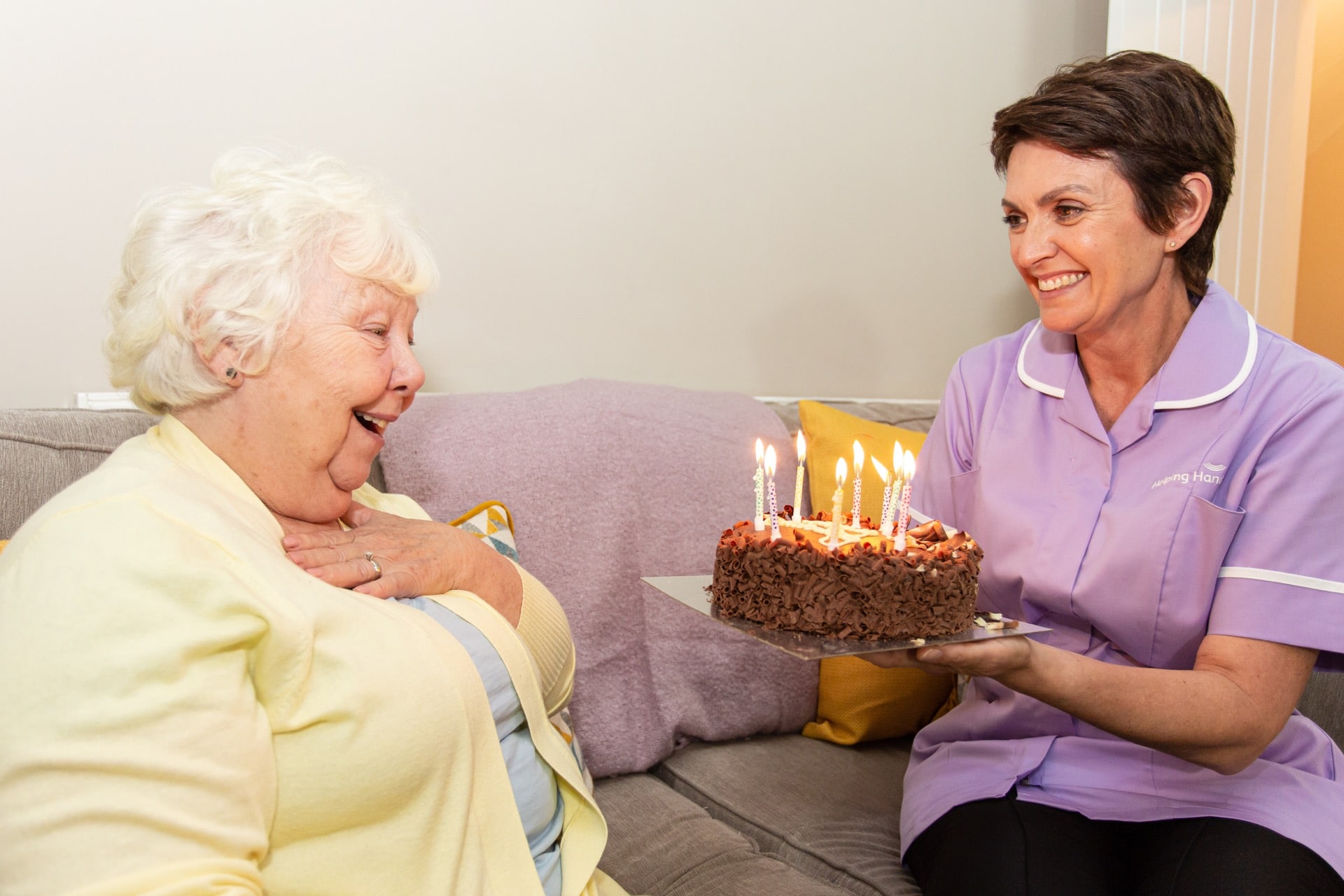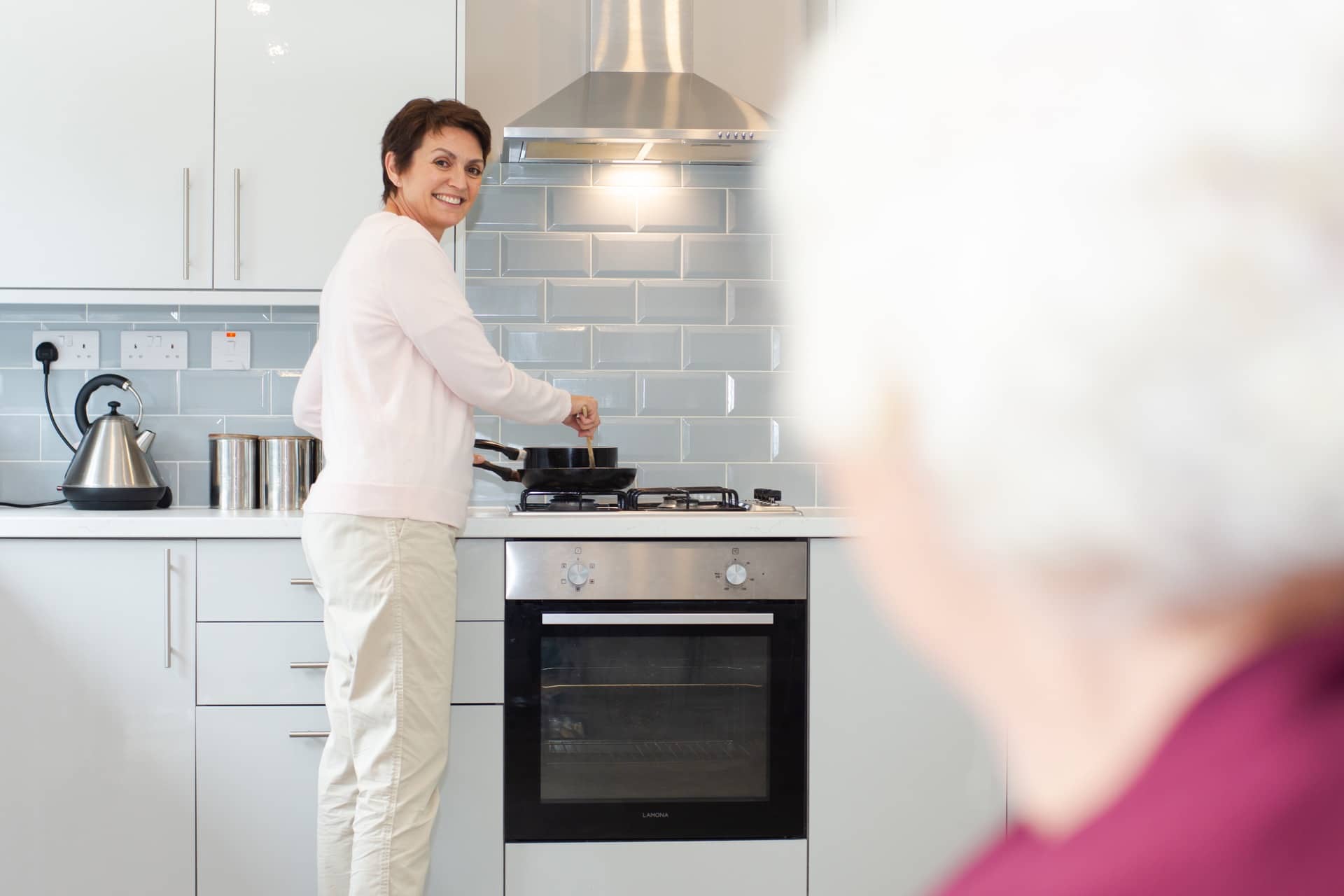The benefits of baking for people living with dementia
What are the benefits of baking?
Baking can be a fun way to bond with a loved one while helping them with their condition.
Whether it’s a fluffy Victoria sponge, a moist red velvet or something rich and chocolatey, we Brits definitely love a good cake. It’s no secret that participating in a creative, hands-on activity such as baking can help someone living with dementia to manage the symptoms of their condition. The idea is to stimulate their senses (sight, sound, smell, taste, hearing) through the processes involved in baking to help boost their mental capacity and trigger happy memories. Baking also provides a wonderful opportunity to bond with a loved one living with dementia, as it can be done at home and doesn’t require complex planning.

Some of the benefits of baking for people living with dementia include:
Reduces stress
Baking can be very calming, and the process of preparing food has been shown to reduce anxiety levels
Improves your appetite
The smell, taste, feel and sight of baking can stimulate the senses, boosting your loved one’s appetite
Helps with memory
The smells and activities involved in baking can bring back fond memories of cooking with or for loved ones
Control your ingredients
Home baking allows you to choose what, and how much of each ingredient, goes into your foods
Improve motor skills
Stirring and kneading ingredients can improve fine motor skills and provide a sense of purpose
Boosts creativity
Previous studies have demonstrated a clear link between creative expression and personal well-being
How to assist someone living with dementia with baking

The way in which you’ll need to help your loved one with baking will depend somewhat on the type and stage of their dementia. For instance, if your loved one is in the early stages of a diagnosis, they might be able to handle most – if not all – of the recipe by themselves. You could help by buying the ingredients for them, or by simply being there for conversation and perhaps a bit of taste testing.
For a loved one with more advanced dementia, choose a simpler recipe with which they might already be familiar. Make sure they don’t have access to sharp implements such as knives and blenders, and assign them tasks they can do repetitively with their hand such as kneading, stirring and measuring.
Tips for baking with dementia
Whatever you choose to bake, the most important thing is to enjoy quality time with your loved one.
Countless studies have shown that socialising, especially with a family member or friend, helps to keep the brain active, boosts memory retention and helps the dementia patient to manage their emotions. Spending time with your loved one in this way will also help you to maintain a bond of trust with them as their condition develops.
Here are some straightforward steps for dementia-friendly baking:
Choose a simple recipe
Choosing a simple recipe means the steps involved will be easy to follow, repeatable, and are likely to produce the correct end product
Break down tasks
Some parts of baking are more straightforward than others. Identify stages of the recipe which your loved one will be able to follow and enjoy.
Don’t force anything
Your loved one may prefer to simply watch you bake, and spend time chatting to you. This can still be calming, and provides a good opportunity to talk.
How can Helping Hands help with dementia care?
We offer bespoke dementia care services for people with all types and stages of the condition.
If you or a loved one are living with dementia and need a bit of extra support to manage from day to day, you may wish to consider external help from a private care provider such as Helping Hands. We offer visiting care and live-in care services across England and Wales, and every single one of our carers receives our industry-leading, specialist dementia care training. Our carers can either help your loved ones to bake, cook and prepare food, or do it on their behalf at the times that suit them. They can also support your loved ones with other tasks and hobbies, both at home and in the community.
Whatever stage of dementia your loved one is living with, your local Helping Hands care team will work alongside them to ensure they’re receiving the ideal type and level of support for their condition on every step of their journey.